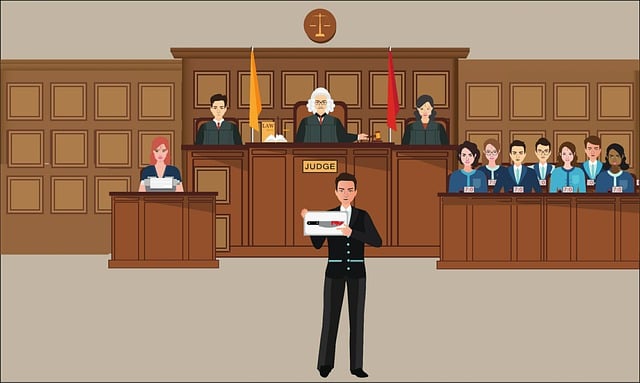Business partnership agreements outline roles, responsibilities, and dispute resolution mechanisms to prevent and resolve conflicts. Open communication, transparent discussions, and comprehensive documentation are crucial for addressing disputes early. Mediation or arbitration offer structured yet flexible environments for resolving disagreements outside traditional courts, preserving relationships and resources. Legal professionals specializing in commercial law provide tailored advice for mutual solutions.
In the intricate web of business partnerships, understanding and resolving disputes are paramount. This article guides you through the critical aspects of managing conflicts within business partnerships, from recognizing issues early to employing effective resolution strategies. We explore essential topics like partnership agreements, dispute identification and documentation, legal remedies, and alternative methods such as mediation. By delving into these areas, we equip you with valuable insights on how to resolve business partner disputes efficiently and amicably.
- Understanding Business Partnership Agreements
- Identifying and Documenting Disputes
- Legal Remedies for Partner Conflicts
- Mediation and Alternative Dispute Resolution
Understanding Business Partnership Agreements

Business partnership agreements are crucial documents that lay the foundation for a collaborative venture. They define roles, responsibilities, and expectations among co-owners, ensuring smooth operations and minimizing potential conflicts. However, as businesses grow, disagreements can arise, leading to disputes that may require legal intervention. Understanding these agreements is essential in navigating such challenges. By clearly outlining ownership percentages, decision-making processes, and dispute resolution mechanisms, partnerships can be structured to withstand the test of time and potential strife.
When disputes do occur, a comprehensive agreement will provide a roadmap for resolving them amicably or through formal legal channels. This may include provisions for mediation, arbitration, or even a complete dismissal of all charges in favorable circumstances, especially in cases involving white-collar defense strategies tailored to the unique dynamics of business partnerships. The goal is to foster an environment where philanthropic and political communities, often closely tied to successful businesses, can thrive without legal impediments stemming from internal disagreements.
Identifying and Documenting Disputes

Identifying disputes within a business partnership is a critical first step in resolving them. Partners should be encouraged to openly communicate concerns or disagreements as early as possible. This proactive approach can prevent minor issues from escalating and helps ensure all parties are aligned with the company’s goals and operations. By fostering an environment where discussions are honest and transparent, partnerships can navigate challenges more effectively.
Documenting these disputes is equally vital. Keeping a detailed record of conversations, decisions made, and subsequent actions taken provides a clear framework for understanding the issue’s progression. This documentation also serves as crucial evidence during the investigative and enforcement process, particularly in white-collar defense cases where the nuances of business transactions can be complex. Whether through mediation or escalating to jury trials, having comprehensive records facilitates more efficient problem-solving and ensures fairness.
Legal Remedies for Partner Conflicts

When business partners find themselves at odds, navigating a legal remedy can seem daunting. However, understanding how to resolve business partner disputes is crucial for maintaining a healthy professional environment. The first step involves open communication and mediation, encouraging each party to express their concerns and work towards a mutually agreeable solution. This approach not only fosters a collaborative atmosphere but also helps avoid costly and time-consuming litigation.
In many cases, seeking the guidance of legal professionals who specialize in commercial law can be immensely beneficial. These experts can provide tailored advice, ensuring that all rights and obligations are considered. Whether it’s a dispute over management decisions, financial disagreements, or differing business goals, there are various strategies to resolve these conflicts amicably. For his clients facing such challenges, seeking mediation or arbitration can offer efficient and effective resolutions, allowing them to focus on the long-term success of their partnerships within their local communities and across the country.
Mediation and Alternative Dispute Resolution

In many situations, resolving disputes outside of traditional courtroom settings can be highly beneficial for all parties involved, especially in business partnerships. Mediation and Alternative Dispute Resolution (ADR) offer a range of options that can help avoid lengthy and costly legal battles, which are often detrimental to both businesses and the philanthropic and political communities they impact. By using these methods, individuals can achieve extraordinary results through collaborative problem-solving.
For business partner disputes, mediation provides a structured yet flexible environment where each party’s concerns are heard and addressed. Trained mediators facilitate open communication, allowing for creative solutions that may not be possible in a general criminal defense setting. This approach encourages cooperation and mutual understanding, fostering an atmosphere conducive to resolving complex issues amicably. As a result, relationships can be preserved, and the strain on time and resources is significantly reduced.
In navigating the complexities of business partnerships, understanding agreements, identifying disputes early, and knowing available legal remedies are crucial steps in preventing or effectively resolving conflicts. Mediation and alternative dispute resolution methods offer efficient, cost-effective alternatives to litigation, enabling businesses to preserve relationships and foster a more harmonious working environment. By implementing these strategies, as discussed in this article on criminal law cases related to business partnerships, you can enhance your ability to resolve partnership disputes seamlessly.






